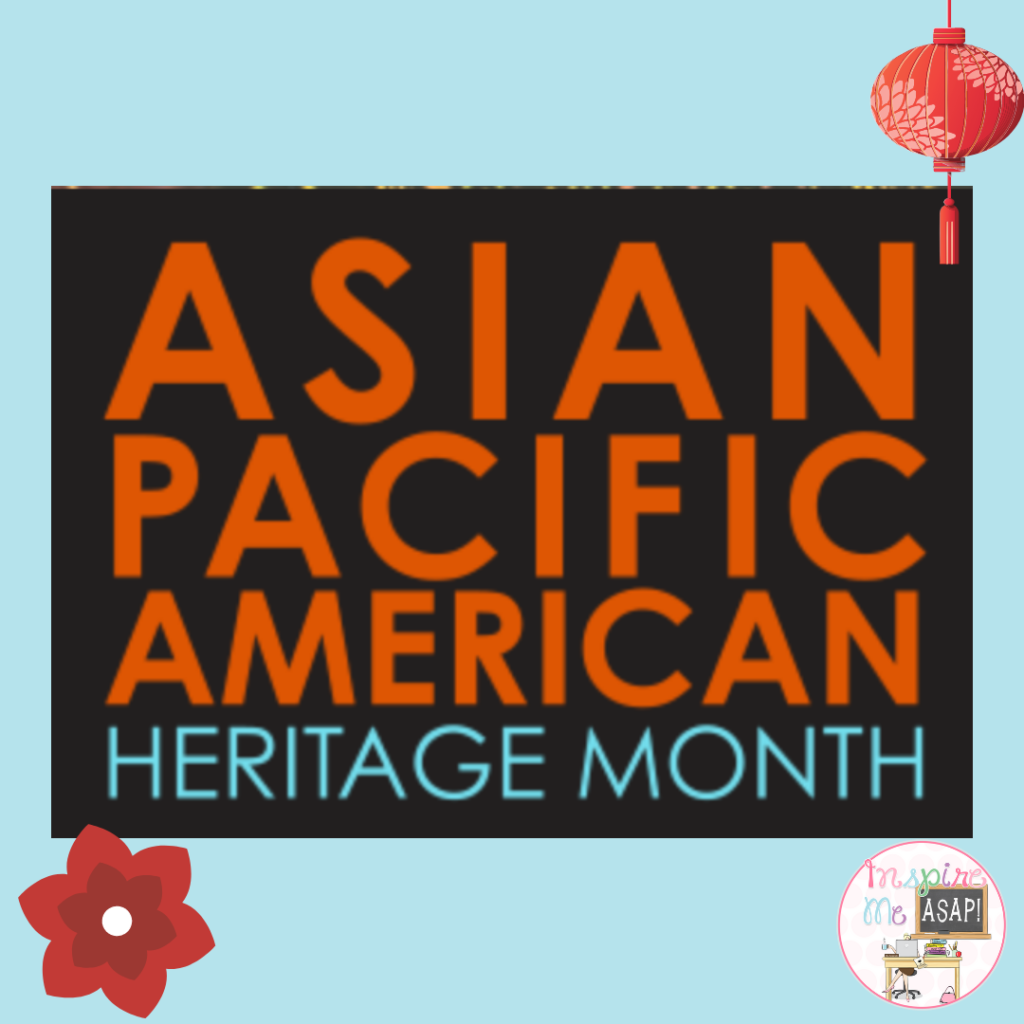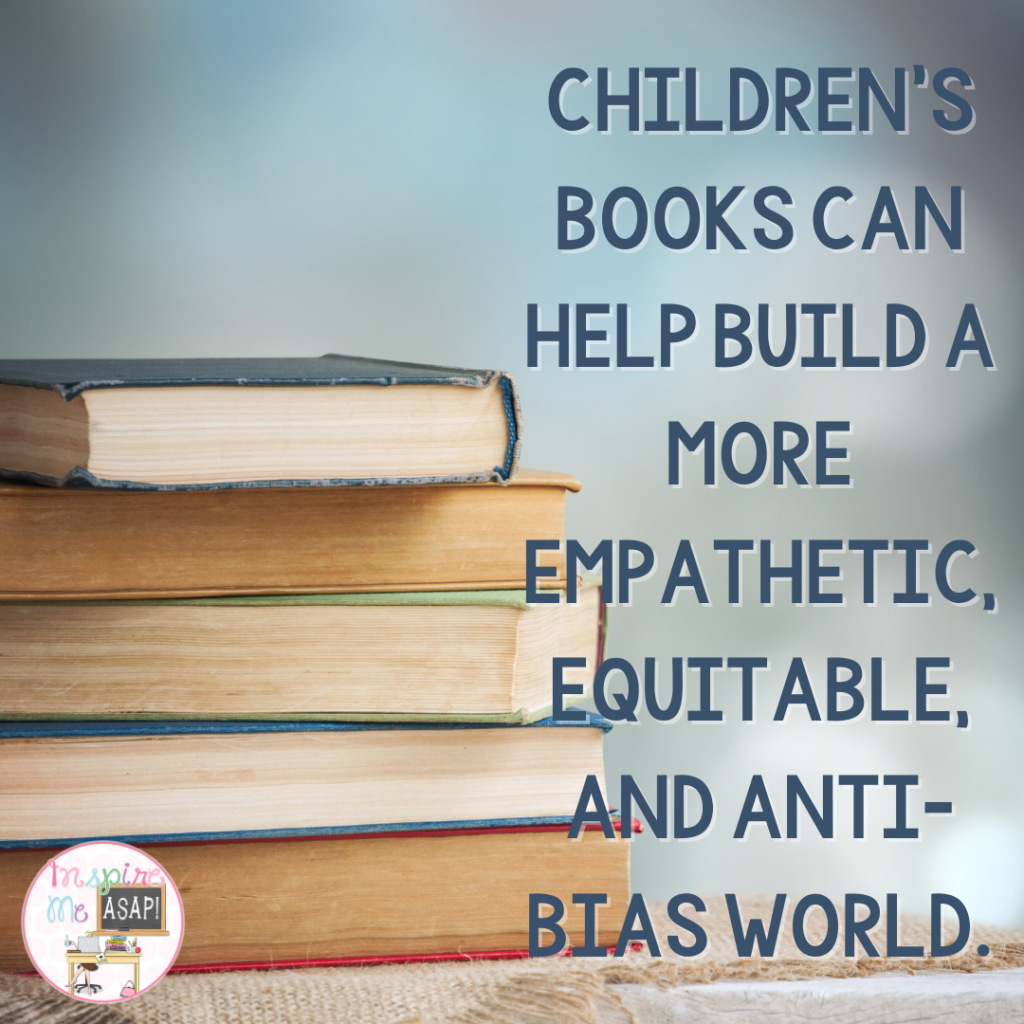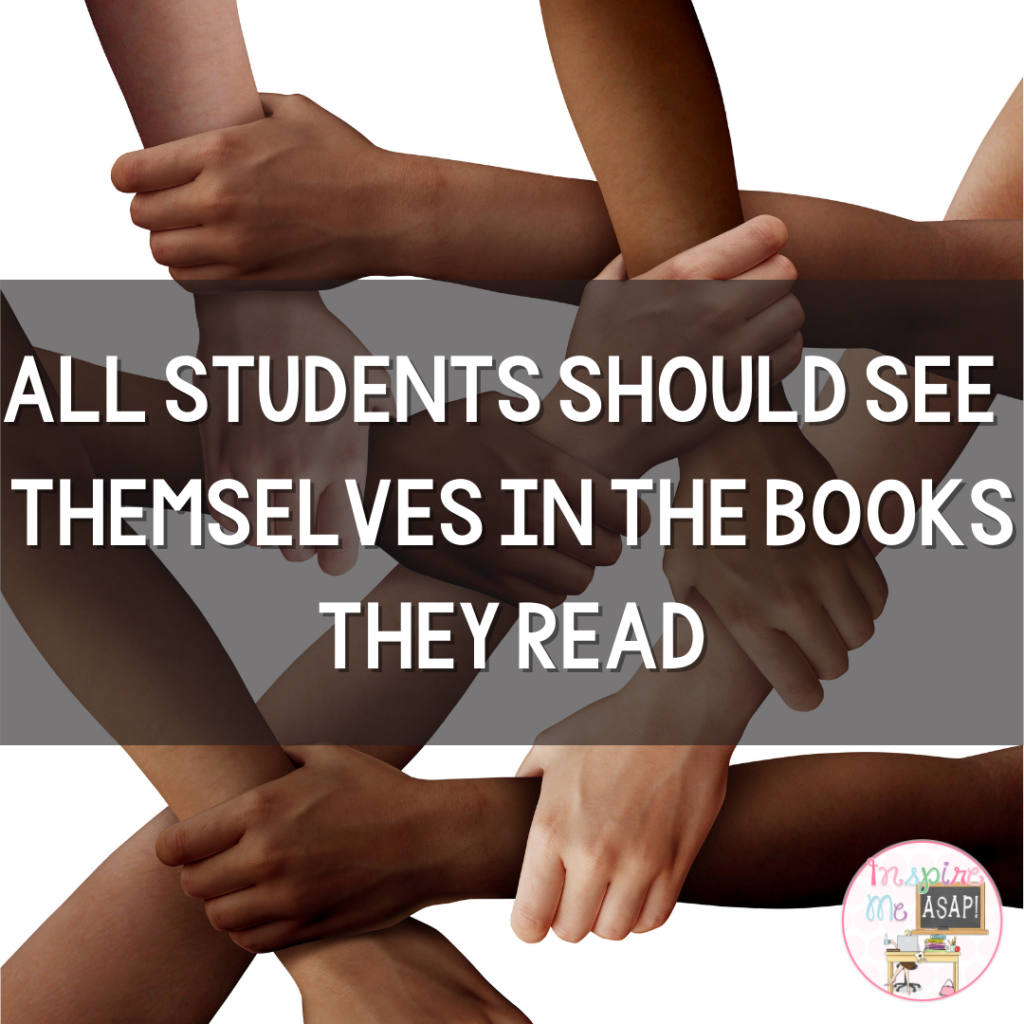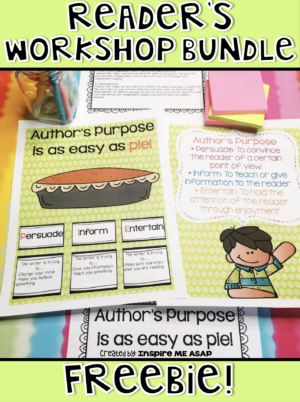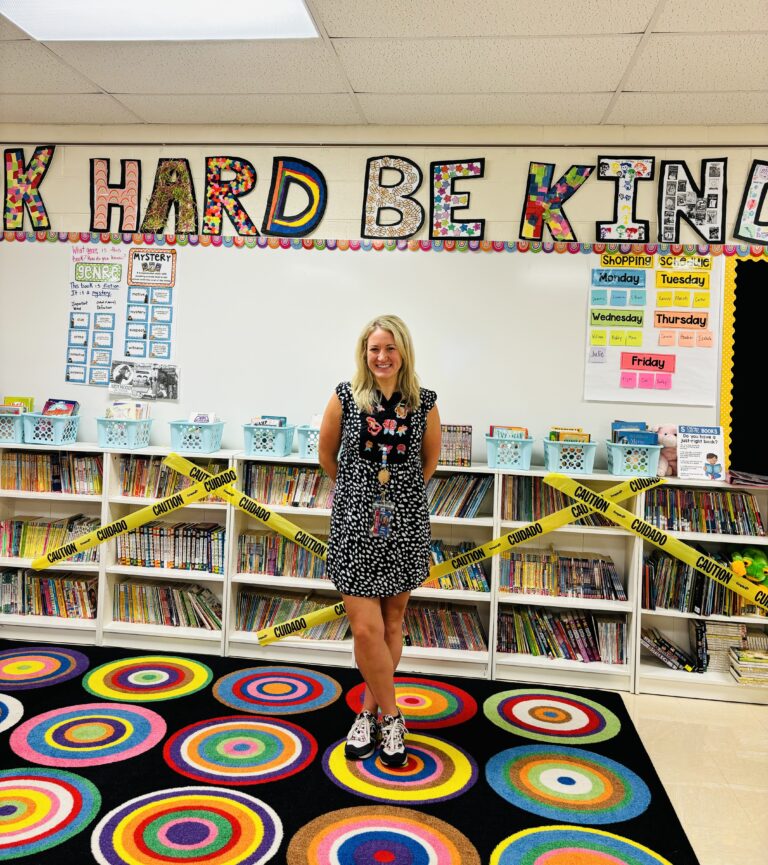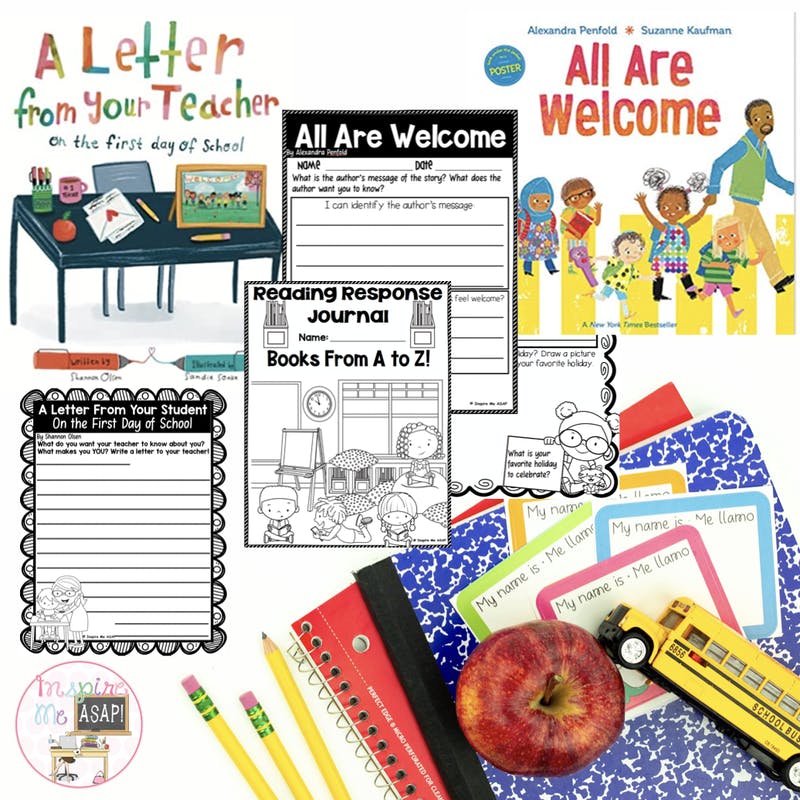May is Asian American Pacific Islander Heritage Month! Due to recent anti-Asian violence, attacks, and hate crimes against the Asian American community, it is more important than ever to celebrate Asian Pacific American Heritage Month. Asian American students, along with students of all ethnic groups and different cultures, deserve to feel safe and welcome in our classrooms.
Today, I will be sharing with you two picture books that I recommend and several easy-to-implement reading lesson plans and ideas you can use in your classroom to recognize and celebrate Asian American and Pacific Islander Heritage Month this May! Seriously, just add books!
As you probably know, many of the children’s books published do not reflect all of our students, and unfortunately, many students do not see themselves in many popular texts. I think every child should feel welcome at school and student’s identity must not only be seen but be celebrated as well. Children’s books are one of the most powerful tools we have to help build a more empathetic, equitable, and anti-bias world.
Mirrors and Windows
When thinking about choosing books for your classroom to help children build strong identities and, in turn, more welcoming classrooms, consider this mirrors and windows analogy. Mirrors represent each child to being able to see themselves, and windows represent allowing each child to learn about people who are different from themselves. As you read these types of books to your students, focus on developing and deepening children’s understanding of the books and discussing important messages and lessons that lie within.
If you would like to watch the video explanation of these lesson ideas, click here!
Celebrating Asian American and Pacific Islander Heritage Month Video on YouTube:
Lessons That You Can Teach With This Book
- Teach about the author’s message! The author’s message is what lesson the author is trying to teach the reader, otherwise known as the text’s theme. The author’s message for this book is to love yourself by recognizing your beauty. Talk about mirrors and windows!
- Have students locate text evidence that describes the author’s message.
- Students can draw and label self-portraits to emphasize their own beauty.
- You could have students write reflections about what they love about themselves.
- Connect this text to other texts with the same message. Have you read anything with similar themes this year?

2. Teach about the author’s purpose! The author’s purpose could be to persuade, inform, or entertain. You can check out my last blog on the author’s purpose here.
- Students could find text evidence to support their inferences about why the author wrote this book.
3. Teach about compare and contrast! Finding similarities and differences between various aspects of the text is an excellent way for students to better comprehend and think deeply about what they read.
- Encourage readers to reflect upon and observe the cultural representation, the characters, the settings, and the events in the story. This encourages making connections to their own cultures and cultures they have seen in society, other books, or in other media.
- Students can make a Venn Diagram as a whole class or independently compare two characters in the story. They could look at personalities, physical traits, or likes and dislikes.
- You could extend by asking students to compare themselves to the characters in the story. Do they notice any similarities or differences? *An important ground rule for this would be to ensure there is no negative talk about differences. Make sure your students know that being alike and different from others is a wonderful thing.*
This book tells the story of superhero Yasmin, who looks for villains to defeat. On her journey, she helps others and does random acts of kindness like helping her neighbors with fallen groceries, etc. At the end of the story, she realizes that she never found a villain. Her dad helps her to see that villains only exist in storybooks and real life. Yasmin is a superhero because superheroes are the ones that go out of their way to help others.
This book is a beginner-level chapter book, but many students will enjoy and identify with this story. It is also a series which is a bonus!
- Complete the activities at the end of the book! The author includes facts about Pakistan and a quick sheet on learning Urdu, a language spoken in Pakistan. She also has a set of discussion questions perfect for a class discussion or reader’s response notebook entries!
2. Do a story elements lesson! Story elements include the characters, setting, plot, conflict, and resolution.
Students could fill out a story map identifying each part. This story has a very clear problem and solution, making this a perfect activity to do with this book!
3. Learn about sequencing! You could teach or review a lesson about the beginning, middle, and end of a story. Then have students fill in a simple graphic organizer for Yasmin the Superhero.
Looking for more books to read aloud during AAPI Heritage Month?
Here are some more books you could teach many of these lessons with:
Mommy Eats Fried Grasshoppers by Vilayvanh Bender
Apple Pie Fourth of July by Janet S. Wong
I hope you get a chance to read these books and try some of these lessons in your classroom Enjoy celebrating Asian American and Pacific Islander Heritage during the month of May!
What are some of your favorite book recommendations or lessons for celebrating these identities?
Disclosure: Amazon links in this description are affiliate links, which means if you purchase through that link, I receive a very small percentage of the sale.


